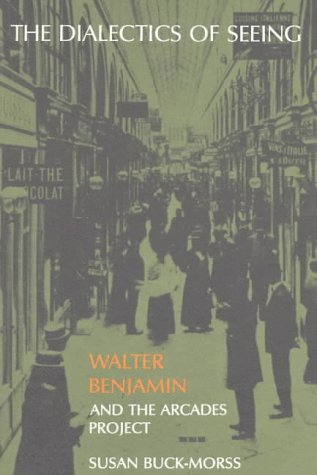David Graeber: The Democracy Project: A History, a Crisis, a Movement (2013)
Filed under book | Tags: · democracy, history, politics

A bold rethinking of the most powerful political idea in the world—democracy—and the story of how radical democracy can yet transform America
Democracy has been the American religion since before the Revolution—from New England town halls to the multicultural democracy of Atlantic pirate ships. But can our current political system, one that seems responsive only to the wealthiest among us and leaves most Americans feeling disengaged, voiceless, and disenfranchised, really be called democratic? And if the tools of our democracy are not working to solve the rising crises we face, how can we—average citizens—make change happen?
David Graeber, one of the most influential scholars and activists of his generation, takes readers on a journey through the idea of democracy, provocatively reorienting our understanding of pivotal historical moments, and extracts their lessons for today—from the birth of Athenian democracy and the founding of the United States of America to the global revolutions of the twentieth century and the rise of a new generation of activists. Underlying it all is a bracing argument that in the face of increasingly concentrated wealth and power in this country, a reenergized, reconceived democracy—one based on consensus, equality, and broad participation—can yet provide us with the just, free, and fair society we want.
The Democracy Project tells the story of the resilience of the democratic spirit and the adaptability of the democratic idea. It offers a fresh take on vital history and an impassioned argument that radical democracy is, more than ever, our best hope.
Publisher Spiegel & Grau, an imprint of The Random House, New York, 2013
ISBN 081299356X, 9780812993561
326 pages
via wakita
PDF (EPUB)
Comment (0)Susan Buck-Morss: The Dialectics of Seeing: Walter Benjamin and the Arcades Project (1989–) [English, Spanish]
Filed under book | Tags: · 1800s, advertising, bourgeoisie, city, commodification, critical theory, cultural criticism, fashion, flaneur, history, literary criticism, literature, paris, photography, poetry

“Walter Benjamin‘s magnum opus was a book he did not live to write. In The Dialectics of Seeing, Susan Buck-Morss offers an inventive reconstruction of the Passagen-Werk, or Arcades Project, as it might have taken form.
Working with Benjamin’s vast files of citations and commentary which contain a myriad of historical details from the dawn of consumer culture, Buck-Morss makes visible the conceptual structure that gives these fragments philosophical coherence. She uses images throughout the book to demonstrate that Benjamin took the debris of mass culture seriously as the source of philosophical truth.
The Paris Arcades that so fascinated Benjamin (as they did the Surrealists whose “materialist metaphysics” he admired) were the prototype, the 19th century ‘ur-form’ of the modern shopping mall. Benjamin’s dialectics of seeing demonstrate how to read these consumer dream houses and so many other material objects of the time—from air balloons to women’s fashions, from Baudelaire’s poetry to Grandville’s cartoons—as anticipations of social utopia and, simultaneously, as clues for a radical political critique.
Buck-Morss plots Benjamin’s intellectual orientation on axes running east and west, north and south—Moscow Paris, Berlin-Naples—and shows how such thinking in coordinates can explain his understanding of ‘dialectics at a standstill’. She argues for the continuing relevance of Benjamin’s insights but then allows a set of “afterimages” to have the last word.”
Publisher MIT Press, 1989
Studies in Contemporary German Social Thought Series
ISBN 0262022680
493 pages
Reviews: Shierry Weber Nicholsen (New German Critique, 1990), Robert Tobin (Phil and Lit, 1991), James L. Gussen (Germanic Review, 1992), Erika Berroth (J Germanic Linguistics, 1994), Beste Alpay (Montréal Review, 2011).
Publisher (EN)
The Dialectics of Seeing: Walter Benjamin and the Arcades Project (English, 22 MB, updated on 2019-12-3)
Dialectica de la mirada: Walter Benjamin y el proyecto de los Pasajes (Spanish, trans. Nora Rabotnikof, 1995, updated on 2013-5-2)
Raoul Vaneigem: The Movement of the Free Spirit (1986/1994)
Filed under book | Tags: · economics, history, market, religion

“This book by the legendary Situationist activist and author of The Revolution of Everyday Life examines the heretical and millenarian movements that challenged social and ecclesiastical authority in Europe from the 1200s into the 1500s.
Although Vaneigem discusses a number of different movements such as the Cathars and Joachimite millenarians, his main emphasis is on the various manifestations of the Movement of the Free Spirit in northern Europe. He sees not only resistance to the power of state and church but also the immensely creative invention of new forms of love, sexuality, community, and exchange. Vaneigem is particularly interested in the radical opposition presented by these movements to the imperatives of an emerging market-based economy, and he evokes crucial historical parallels with the antisystemic rebellions of the 1960s. The book includes translations of original texts and source materials.”
Originally published as Le Mouvement du libre-esprit, Editions Ramsay, 1986
Full title: The Movement of the Free Spirit: General Considerations and Firsthand Testimony Concerning Some Brief Flowerings of Life in the Middle Ages, the Renaissance and, Incidentally, Our Own Time
Translated by Randall Cherry and Ian Patterson
Publisher Zone Books, 1994
ISBN 0942299701, 9780942299700
302 pages
via aleksag
PDF (updated on 2013-4-30, thanks esco_bar!)
Comment (1)
